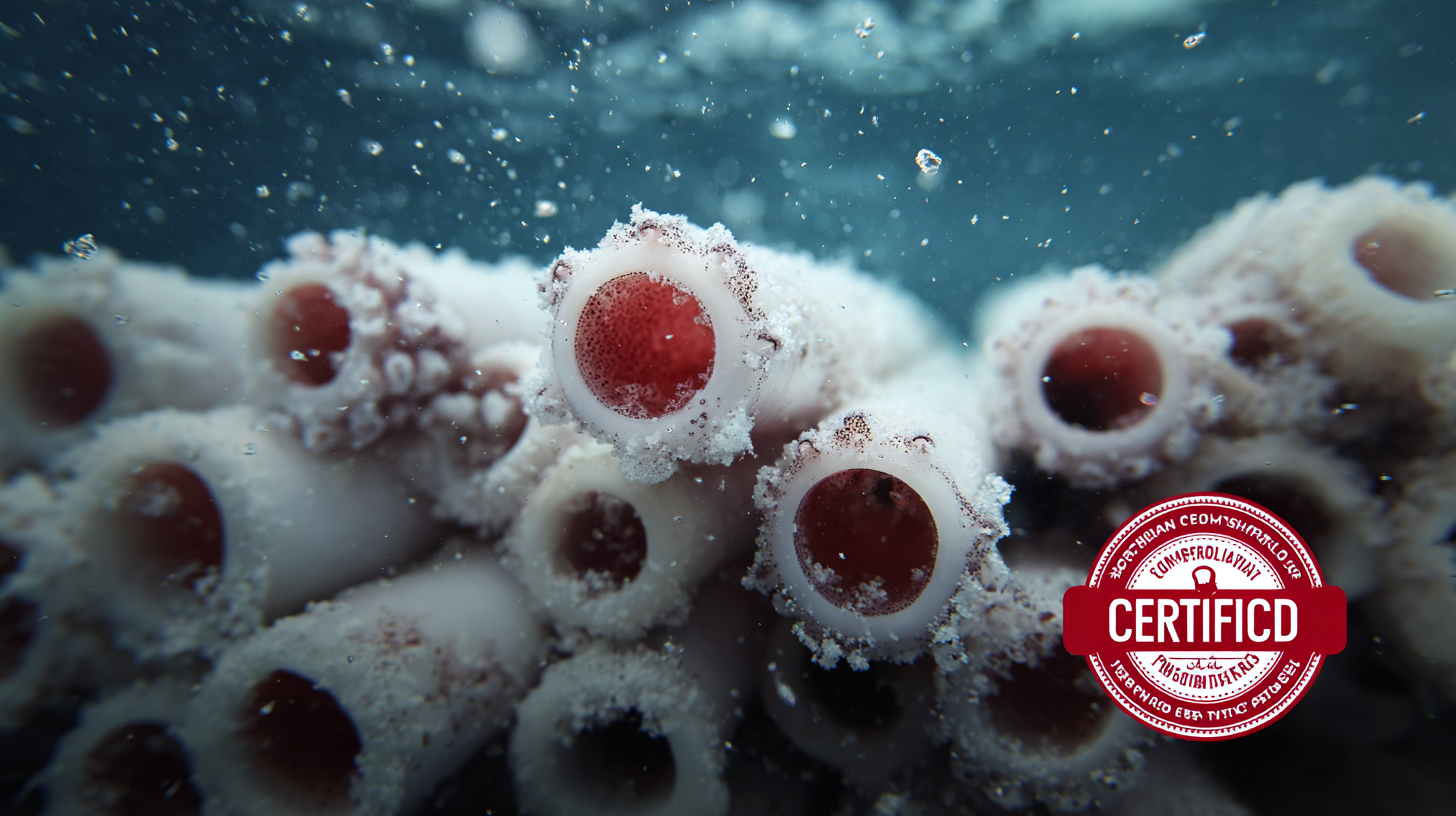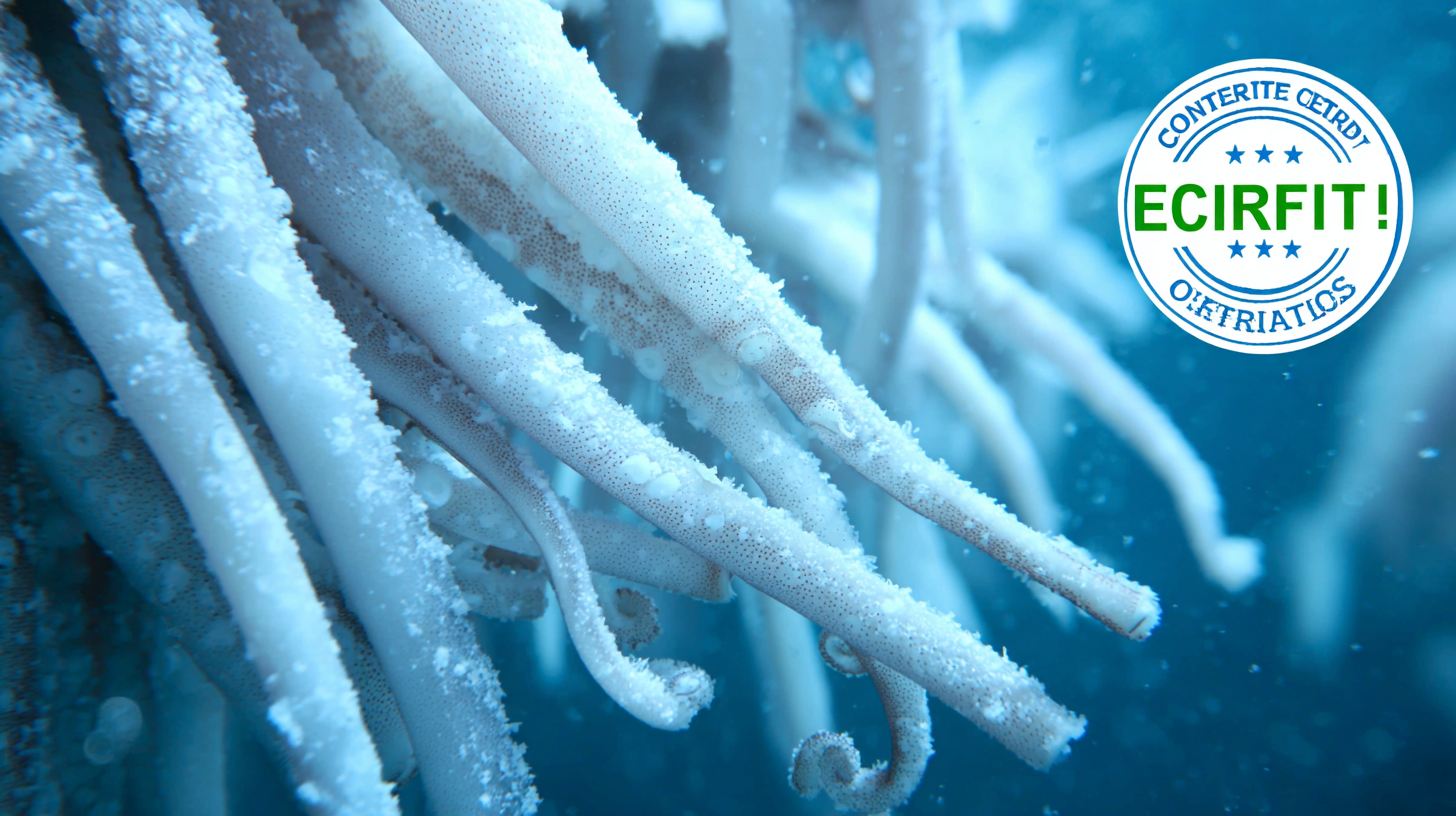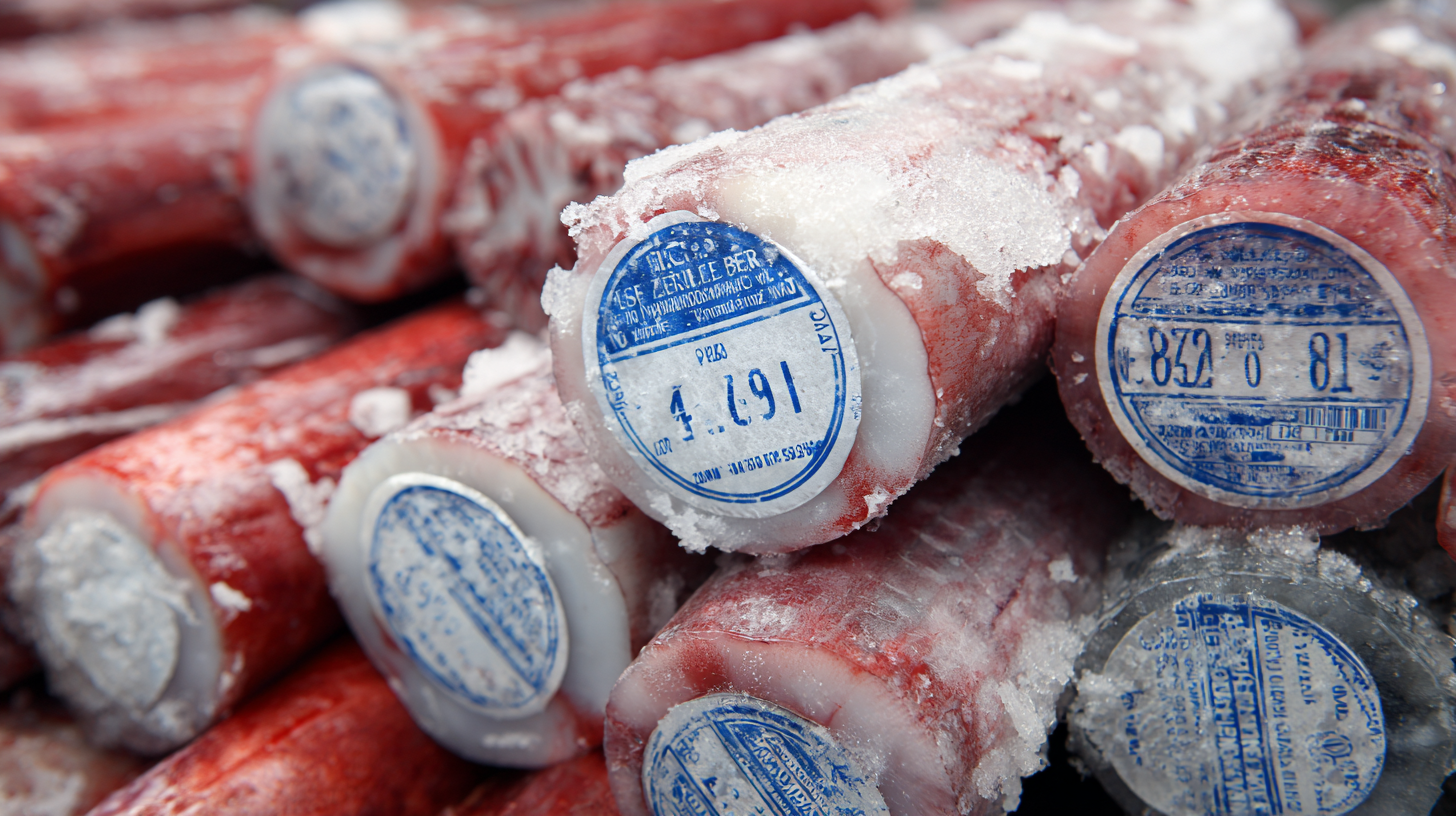In the ever-evolving landscape of global trade, the importance of navigating import and export certifications cannot be overstated, particularly in the dynamic frozen squid tubes industry. As consumers increasingly prioritize quality and safety, manufacturers and exporters face the challenge of ensuring compliance with international standards while maintaining the integrity of their products.

"专注品质,中国制造,出口全球领先" encapsulates the commitment of Chinese manufacturers to deliver top-notch frozen squid tubes that meet the rigorous demands of worldwide markets. This blog aims to explore the intricacies of certification processes, the significance of quality assurance, and the strategic steps that can help stakeholders thrive in the competitive export arena, ultimately showcasing how China is poised to lead globally in this specialty.
In the frozen squid tubes market, import and export certifications play a crucial role in ensuring product safety, quality, and compliance with international regulations. According to a report by the Food and Agriculture Organization (FAO), the global market for frozen seafood, including squid, is projected to surpass USD 165 billion by 2025. This growth is largely driven by the increasing demand for high-quality seafood, which necessitates strict adherence to certification standards.
Import and export certifications serve not only to enhance consumer trust but also to facilitate trade between countries. The European Union, for instance, imposes rigorous certifications such as the Hazard Analysis and Critical Control Points (HACCP) system to ensure that seafood products meet their stringent safety and hygiene standards. A study from the International Seafood Sustainability Foundation (ISSF) notes that 75% of consumers are willing to pay a premium for certified seafood, reflecting the growing awareness of sustainability and food safety. As the competition in the frozen squid tubes industry intensifies, businesses that prioritize obtaining the necessary certifications are more likely to secure a competitive edge in the global marketplace.
When venturing into the frozen squid tubes industry, understanding the key certifications is essential for ensuring product quality and compliance with international regulations. Frozen squid tubes often require specific certifications to facilitate smoother import and export processes. Some of the most significant certifications include HACCP (Hazard Analysis Critical Control Point), which focuses on food safety, and MSC (Marine Stewardship Council) certification, which indicates sustainable fishing practices. Obtaining these certifications not only enhances product credibility but also assures consumers of the safety and sustainability of the seafood they purchase.
In addition to these essential certifications, businesses should consider obtaining ISO certifications, which demonstrate adherence to international quality management standards. This can be particularly valuable when dealing with suppliers and customers across different countries. Engaging with government veterinary services for local health certifications can also streamline the export process and avoid potential delays.
**Tips:** Always stay updated on the certification requirements specific to your target markets, as they can vary significantly. Collaborating with local regulatory agencies can provide insights and assistance in navigating the complexities of international trade certifications. Additionally, maintaining comprehensive records of your certifications will facilitate smoother inspections and audits, further bolstering your business reputation in the frozen seafood industry.
| Certification | Issuing Authority | Purpose | Validity Period | Region Applicable |
|---|---|---|---|---|
| HACCP Certification | International Food Safety Authorities | Ensures food safety management | 3 years | Global |
| ISO 22000 Certification | International Organization for Standardization | Food safety management system standards | 3 years | Global |
| FDA Registration | U.S. Food and Drug Administration | Required for food products exported to the U.S. | No expiration, but must be updated | United States |
| EPR Certification | Environmental Protection Agencies | Covers environmental impact regulations | Varies by region | Region-specific |
| BRC Global Standard | British Retail Consortium | Food safety and quality certification | 1 year | Global |
When exporting frozen squid tubes, navigating the complex regulatory frameworks is crucial for ensuring compliance and market access. According to the Global Aquaculture Alliance, the frozen seafood export market is projected to reach $175 billion by 2025, highlighting the substantial opportunity for businesses that effectively manage their certifications. Understanding the specific requirements of different markets, including health certifications, quality standards, and traceability protocols, can significantly enhance a company's competitive edge.
In particular, exporters must be attuned to the guidelines provided by international bodies such as the Food and Agriculture Organization (FAO) and the World Trade Organization (WTO). The FAO reports that a significant percentage of seafood imports face compliance issues related to labeling and food safety standards. For instance, in 2022 alone, over 30% of seafood shipments were delayed due to improper certifications. Establishing robust documentation processes and regular training for staff can mitigate these risks, ensuring that frozen squid tubes meet the necessary international standards and thus facilitating smoother market entry.
This bar chart illustrates the increasing export volumes of frozen squid tubes from 2020 to 2023, highlighting the growth trend in the industry as it adapts to navigating regulatory frameworks and certifications.
When it comes to maintaining compliance in the frozen squid tubes supply chain, several key practices should be prioritized. First and foremost, businesses must ensure that all imported products meet the necessary health and safety standards set by authorities. This includes obtaining relevant certifications that verify the quality and safety of the squid tubes. Regular inspections and audits should be conducted to guarantee that all suppliers and distributors adhere to these standards, ultimately protecting the integrity of the entire supply chain.
Another critical aspect is the accurate documentation of all transactions and shipments. Keeping meticulous records will facilitate smooth operations and ensure traceability, which is essential in the event of a recall or safety concern. Additionally, training staff on compliance protocols and the importance of adhering to regulatory requirements can foster a culture of accountability within the organization. By equipping teams with the knowledge they need, businesses can better navigate the complexities of import and export certifications, ensuring they remain compliant while delivering high-quality frozen squid tubes to consumers.

Navigating the complex certification processes required for the frozen squid tubes industry can often present substantial challenges. One of the most common hurdles is ensuring compliance with varying international standards. Different countries have distinct regulations regarding food safety, labeling, and handling practices, making it essential for exporters to stay informed about the requirements of each target market. This complexity can lead to delays in obtaining necessary certifications, resulting in lost revenue and market opportunities.

To overcome these challenges, it is crucial for businesses to invest in thorough research and establish strong communication channels with relevant authorities. Engaging with industry experts or consultants who specialize in import and export certifications can provide invaluable insights. Additionally, implementing a robust internal system to track compliance progress and deadlines can help companies manage the certification process more effectively. By fostering collaboration between teams responsible for production, quality control, and compliance, businesses can streamline operations and ensure that they meet certification requirements efficiently.
